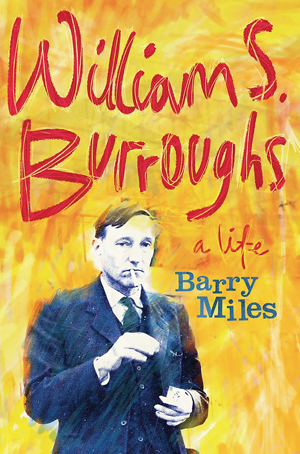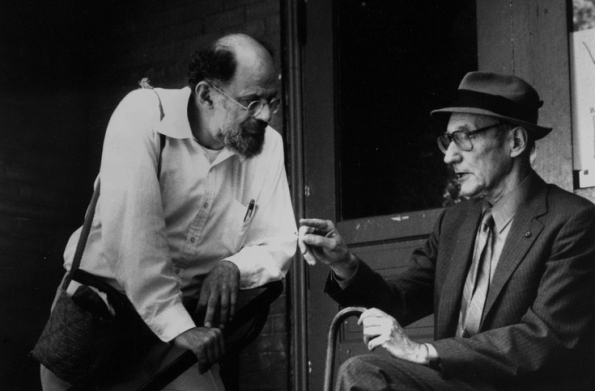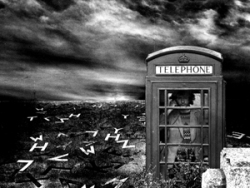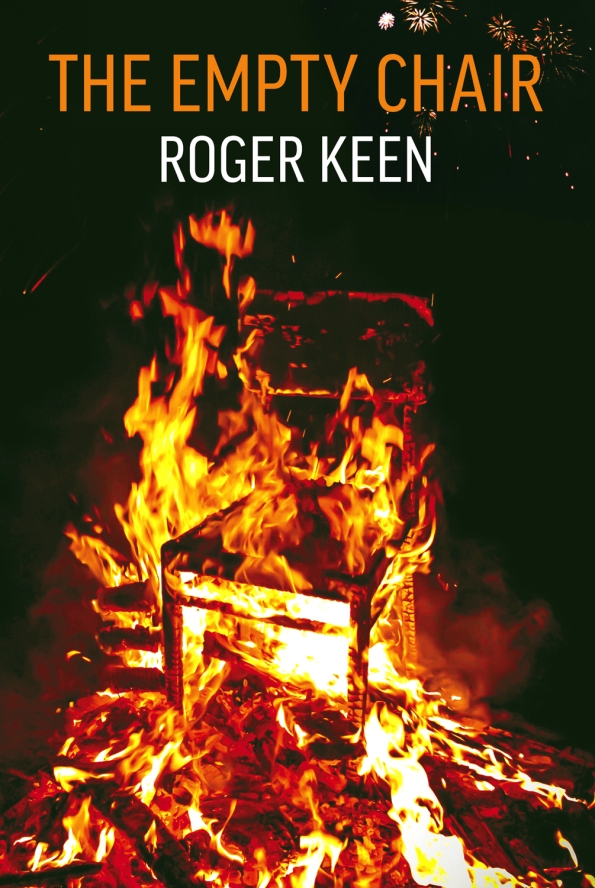Archive
William S. Burroughs: A Life
 What follows is an extended review of Barry Miles’s biography: William S. Burroughs: A Life (American title: Call Me Burroughs: A Life), which was published in February 2014 to mark the centenary of Burroughs’s birth.
What follows is an extended review of Barry Miles’s biography: William S. Burroughs: A Life (American title: Call Me Burroughs: A Life), which was published in February 2014 to mark the centenary of Burroughs’s birth.
The review first appeared in the Psychedelic Press magazine Vol IV 2014, and has never before been online. It is reprinted now because of its in-depth quality and the fact it provides a whistle-stop tour of Burroughs’s life through the lens of Barry Miles’s updated facts.
Barry Miles is no stranger to writing about William Burroughs or the wider Beat scene. He had known Burroughs and been part of his circle since the mid-1960s, when Burroughs lived in London, and has catalogued his work, collaborated with others on restored texts of his novels and has written a portrait of Burroughs, El Hombre Invisible, which for many years has served as the standard primer or introduction to the life and work of the man. Miles has also penned biographies of Kerouac and Ginsberg and other works related to the Beats, such as The Beat Hotel. He therefore seems ideally equipped to write this new definitive biography of Burroughs, published to coincide with the centenary of the author’s birth in 1914.
As he tells us in the introduction, Miles had a hand in the making of the myth of Burroughs, a phenomenon which has now become so powerful that it has ensured Burroughs a place as a character in history independent of his place in the hall of great writers. It was in 1984 that Miles discovered a lost Burroughs manuscript, Interzone, which together with another from the past that he’d previously uncovered was instrumental in getting Burroughs a new publishing deal. That other manuscript was Queer, Burroughs’ second novel, written in the early ’50s but never published at that time. In the ’85 edition Burroughs supplied a short introduction, a few pages of autobiographical background that were to prove seminal in establishing the Burroughs ‘myth’.
Read more on: Medium
The Beat Hotel & Shakespeare and Company
This short film was assembled from recently rediscovered footage I shot in 2006, showing the legendary Beat Hotel in Rue Gît-le-Cœur in the Paris Latin Quarter, and the nearby equally legendary bohemian bookshop Shakespeare and Company.
In the 1950s the hotel was home to Beat luminaries William Burroughs, Allen Ginsberg and Gregory Corso. Burroughs completed his novel Naked Lunch here, and in conjunction with the artist Brion Gysin, he discovered the consciousness-altering dreamachine and the cut-up literary technique, used in subsequent novels, including Soft Machine and Nova Express.
The original Shakespeare and Company was founded by Sylvia Beach in the 1920s, and writers such as Hemingway, Pound, Fitzgerald, Joyce and Beckett gathered there. It featured in the Woody Allen film Midnight in Paris, but it was shut down during the Nazi occupation in 1941. The bookshop, in its current location, was founded by George Whitman, an expat American of literary leanings, who at the time of filming was still alive and active at the age of ninety-two. Back in the ’50s he knew Henry Miller and Anais Nin, as well as Samuel Beckett and, of course, the Beat writers.
George Whitman died in 2011, just after his ninety-eight birthday, and the bookshop is now run by his daughter, named after Sylvia Beach. As for the Beat Hotel, in its present incarnation – as the Relais Hotel du Vieux Paris – you can stay for around 150 Euros per night, and if you ask they might give you Burroughs’ old room.
The Beat Writers and the Psychedelic Movement

Allen Ginsberg & William Burroughs in later years.
This article was adapted from my talk at Breaking Convention 2015, held in London at Greenwich University. It has now been published by the excellent Oak Tree Review, which investigates the many branches of psychedelic culture throughout history, specialising in its manifestations in art and literature.
In their activities and writings in the late 1940s and ’50s the Beat writers – principally Jack Kerouac, William Burroughs and Allen Ginsberg – prefigured and influenced the Psychedelic Movement, which came into flowering a generation later. When those epoch-making cultural changes got underway in the ’60s, the Beats were naturally looked upon as mentor figures and elder statesmen, and Timothy Leary, who was of the same age group as them, was happy to recruit and induct them into the cause – through his Harvard program. This produced some unexpected and volatile results – Tim Leary got more than he bargained for – and the end product as regards the three major Beat writers was one spectacular success, one mixed case, and one spectacular failure.
It all started in New York in 1943, within the Columbia university scene where the Beats first hooked up. At the time Jack Kerouac was in his early twenties, and already saw himself as a writer. Bill Burroughs was older, in his late twenties, and was known as a raconteur and intellectual, and became a mentor figure to the group. Allen Ginsberg was the kid, still a teenager, and just enrolled at Columbia. There were other key people in the group, such as Lucien Carr, another student, and everybody became fictionalised in Kerouac’s novels – most notably On the Road.
At around this same time Burroughs first tried morphine and became an addict, so the events of his first novel Junkie run roughly concurrently to On the Road. In both books, which are strongly autobiographical, there are many references to recreational drug use, and they open a marvellous window onto pre-psychedelic bohemian life – exactly the kind of scene which would develop eventually into the hippie scene.
Read more on: The Oak Tree Review
The Beat Writers and the Psychedelic Movement
My Breaking Convention talk from July 2015 is now up on YouTube.
In their writings and lifestyle experiments, the Beat writers Kerouac, Burroughs and Ginsberg were very much the precursors of the psychedelic movement – in particular with regard to their employment of drugs for recreational and psychonautic purposes. They were pioneering users of ayahuasca, mescaline, psilocybin and LSD; and when Timothy Leary began his Harvard work he naturally tried to induct the three as elder statesmen figures. The results were somewhat volatile and unexpected, with one resounding success, another a mix of good and bad, and another a resounding failure. Nevertheless the Beats remain highly influential figures and today’s psychedelic culture would not be the same without them.
On the Road – On Film
So I finally got around to seeing the movie version of Kerouac’s On the Road, not far off two years after its UK release, which, for a writer and film buff who counts the Beat scene as a specialist interest, seems somewhat lackadaisical! I missed it at the cinema and having absorbed the lukewarm reviews and general lack of buzz surrounding the release, I wasn’t in any hurry to catch it on DVD. In a way I was delaying disappointment, putting off a moment of long anticipation that was now almost certainly destined to be anticlimactic. Why would I want to spend two hours witnessing one of the most cherished and influential novels of my life turned into just another average piece of 1940s-’50s period cinema-screen fodder?
Like its companion Great Beat Novel Naked Lunch, On the Road presented challenges to the filmmaker. Its autobiographical narrative is episodic, meandering and strung out, lacking the neatly shaped arc that would authoritively drive a film plot. What holds the book together is, of course, Kerouac’s prose itself, his ‘bop prosody’ with its jazz-like spontaneity, exuberance, fearless rule-breaking experimentation and pure drug-tinged scintillation. Finding a parallel method to inject all that into a film and make it work is no easy task. Go too far from the original – as David Cronenberg did with Naked Lunch – and you end up with something that’s a bit potty; but try to be too faithful and the danger is your product will be flat and lacklustre in its attempts at reverence.
Walter Salles’ On the Road does at times fall into the latter trap. What was cutting edge in ’50s culture and writing – acting crazy whilst mouthing off about poetry and philosophy, doing Benzedrine and weed and swapping sexual partners – now seems tame, dated and so-whatish in many of the film’s scenes. There is no shock value and not much of a curious spin to make us view the action in a special light. Kerouac the writer manifests in the most conventional of ways – in voice-over narration from the actual text, banging the keys of his typewriter with big close ups of the emerging words, and the usual spiel about wanting to capture life’s evanescence. Finally the moment where he writes the first draft of the book itself, on a continuous scroll of paper (obviously not part of the text itself), becomes the apotheosis of the whole process – again hardly a ground-breaking idea.
This device of real-life framing of the fiction, also employed in Cronenberg’s Naked Lunch mash-up, seems almost inevitable in dealing with Beat mythology now, as the biographical details of the protagonists and their writings permeate each other totally. And when you have a ‘fiction’ such as On the Road which is already ‘real-life’ – on the IMDB page real and fictional names appear side by side – one might think there is little point in retaining the fictional armature at all; why not make a film about the events ignoring Kerouac’s own perspective and instead try to say something new? Read more…



